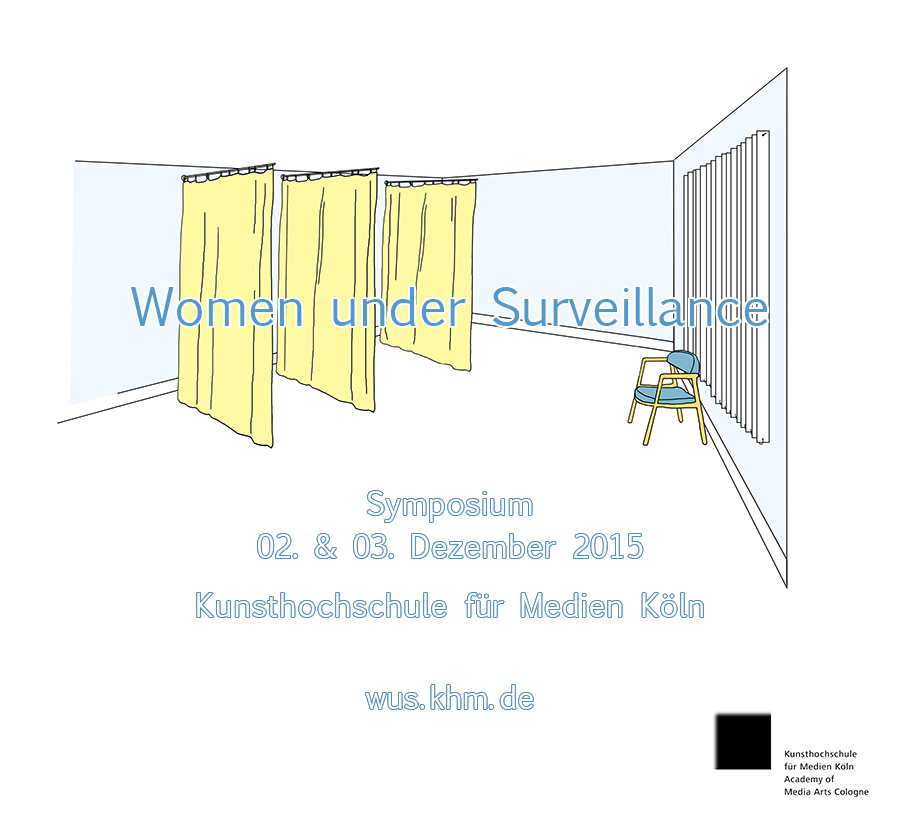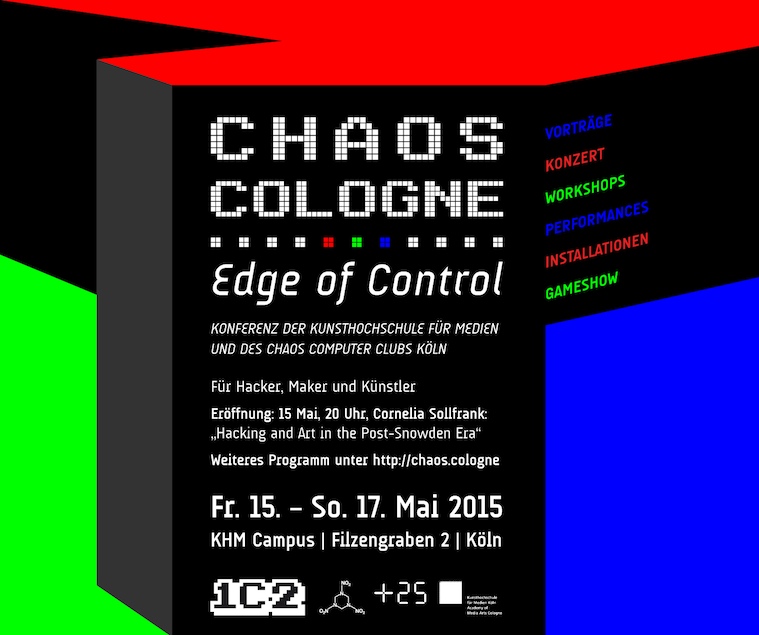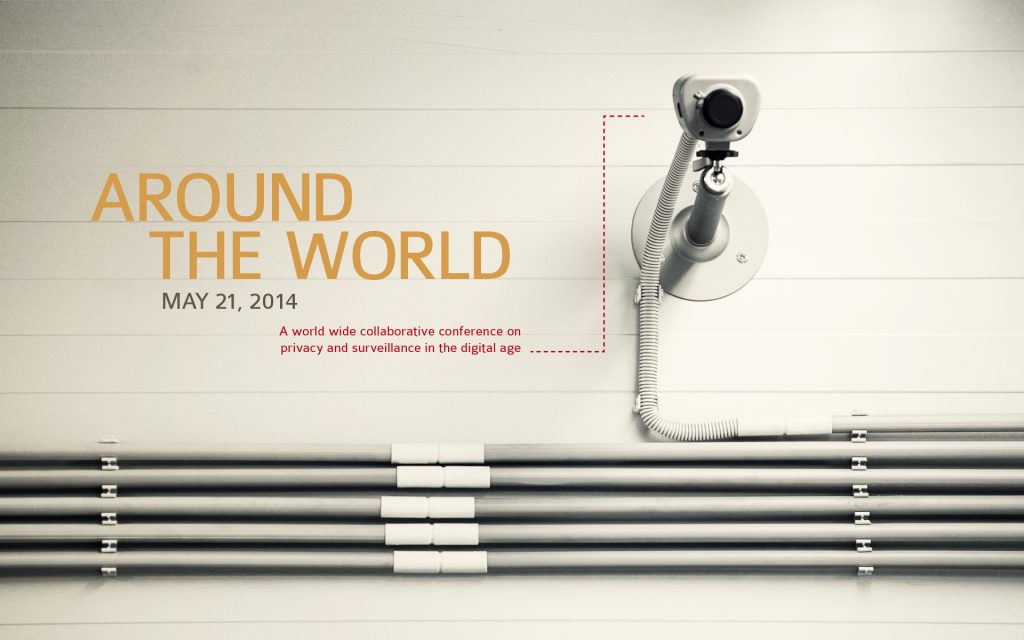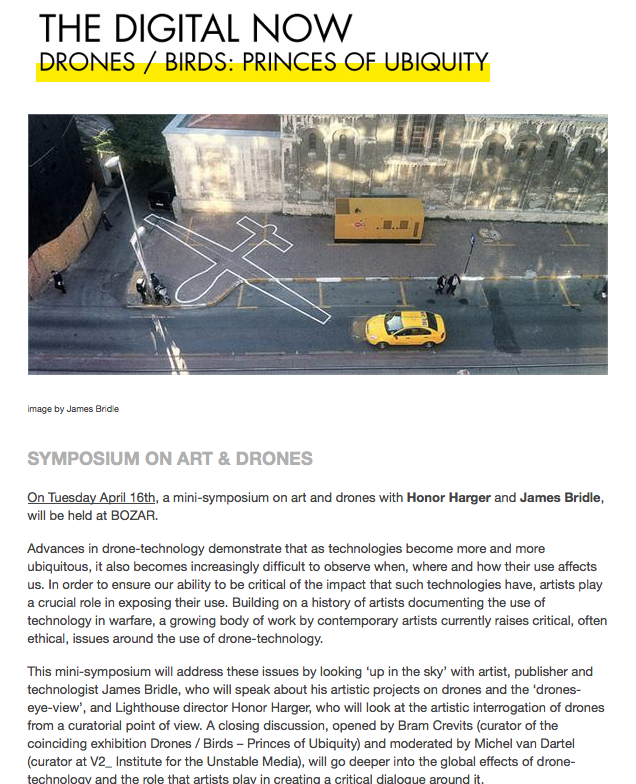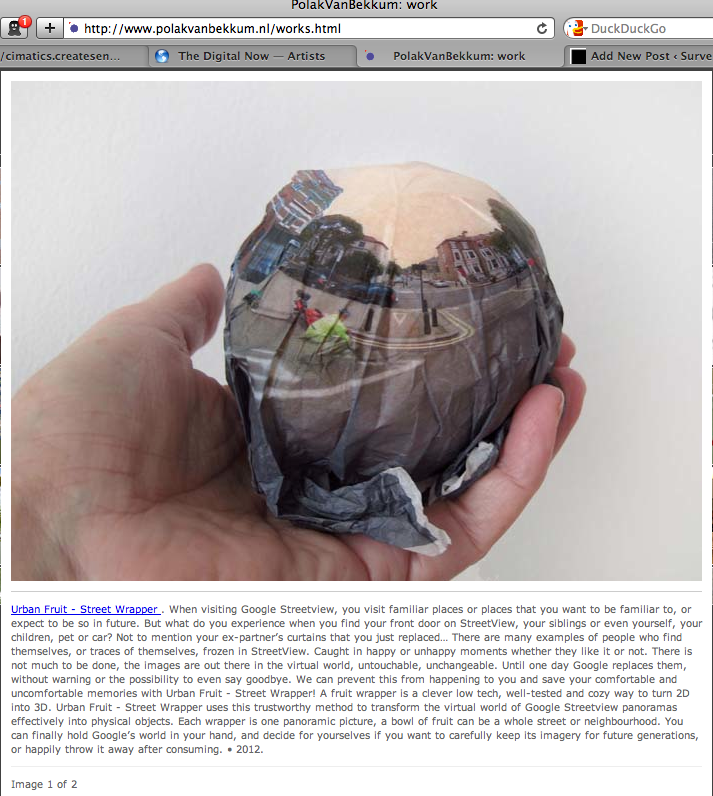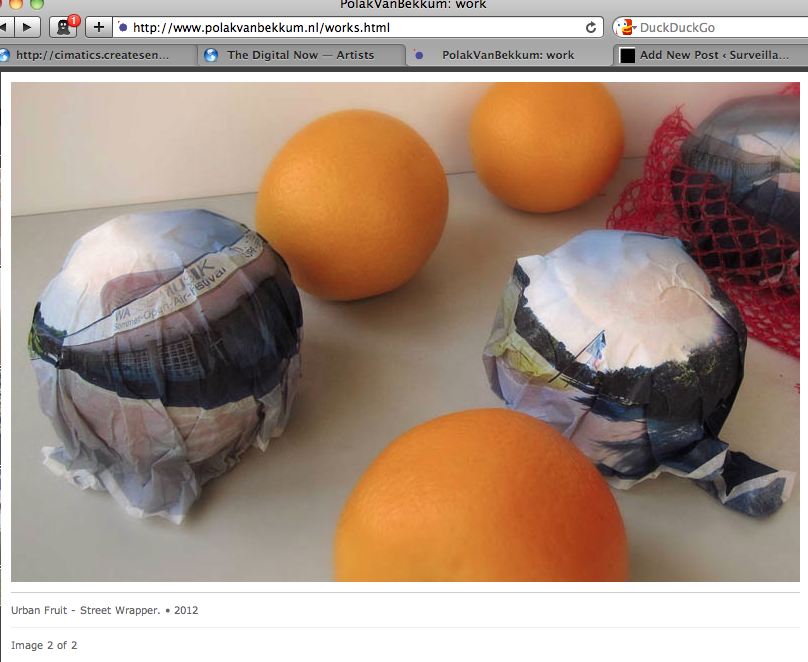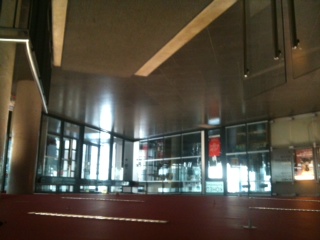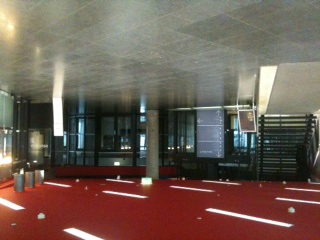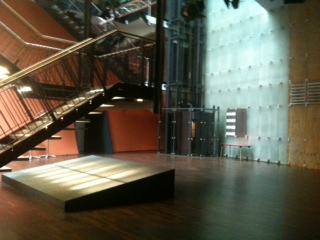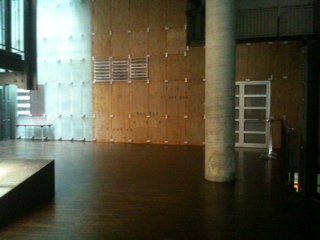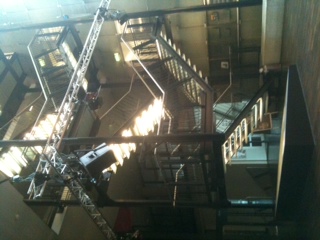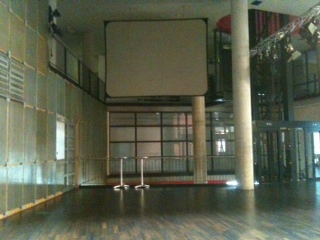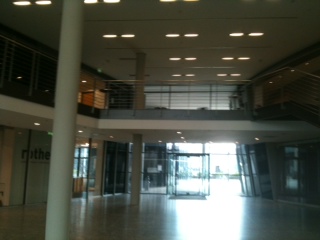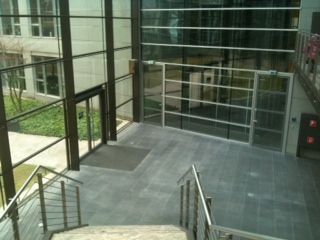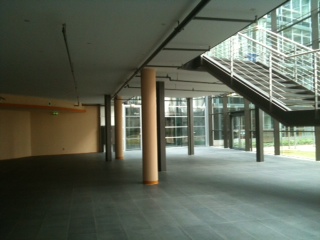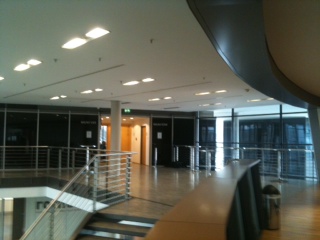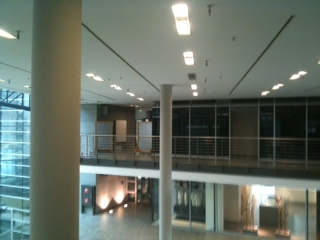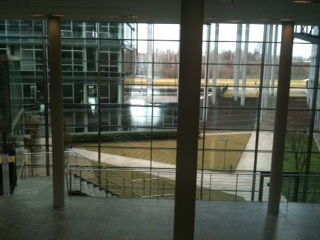Please scroll down for English version
Symposium
2. & 3. Dezember 2015
Kunsthochschule für Medien Köln
Filzengraben 2, 50676 Köln
Das zweitägige Symposium Women under Surveillance tritt vermeintlich neutralen Definitionen von Überwachung entgegen. Es führt einen künstlerischen und interdisziplinären Dialog über Überwachung im Digitalzeitalter. Dieses Bezugsfeld wird dabei mit einem besonderen Fokus auf dessen Bedeutung für Frauen diskutiert.
Das Symposium bringt Vorträge, Performances, Installationen und Filmscreenings zusammen, die sich mit Themen wie Datensammlung oder Kontrollobsessionen im Namen der Sicherheit auseinandersetzen.
Ziel ist die reine Diskussion, ob exzessive Überwachung notwendig und zielführend ist angesichts einer zunehmend unsichereren Welt, hinter sich zu lassen und stattdessen anhand geschlechtsspezifischer historischer Überwachungskomplexe, wie beispielsweise der Regulierung der Autonomie der Fortpflanzung und der Sexualität, die Frage zu stellen, wer von wem beobachtet wird, wie, warum und zu welchen Kosten?
Konzeption und Organisation: Prof. Julia Scher, Christian Sievers, Dieuwke Boersma und die Surveillant Architectures Group an der Kunsthochschule für Medien Köln. Filmprogramm kuratiert von Christa Pfafferott. Design von Stephanie Glauber.
Im Rahmen des Symposiums präsentiert GLASMOOG – Raum für Kunst & Diskurs an der Kunsthochschule für Medien Köln „Tektite Revisited“, ein Ausstellungs- und Filmprojekt der Filmemacherin Meghan O’Hara und des Kunsthistorikers James Merle Thomas.
Referenten / Performer:
bankleer (KünstlerInnengruppe, Berlin)
chicks on speed (KünstlerInnengruppe, Köln/Hamburg)
Sophie Maintigneux (Bildgestalterin, Professorin für Bildgestaltung, KHM)
Karin Michalski (Vertretungsprofessorin für Kunst- und Medienwissenschaften/Gender, KHM)
Lívia Nolasco-Rozsas (Kuratorin, ZKM Karlsruhe)
Meghan O’Hara (Filmemacherin, California State University, Monterey Bay, Seaside, CA) & James Merle Thomas (Kunsthistoriker und Kurator, University of Southern California, Los Angeles, CA)
Christa Pfafferott (Autorin und Regisseurin, Hamburg)
Angela Richter (Regisseurin, Schauspiel Köln)
Katrin Schlösser (Filmproduzentin, Professorin für kreative Film- und Fernsehproduktion, KHM)
Dirk Schulz (GeStiK – Gender Studies, Universität zu Köln)
Mark von Schlegell (Autor und Kulturtheoretiker, Köln)
Mi You (Wissenschaftliche Mitarbeiterin, Kunst- und Medienwissenschaften, KHM)
und Studierende der KHM
The two-day symposium Women under Surveillance counters neutral definitions of surveillance to establish a platform for artistic and interdisciplinary dialogue along the lines of women and surveillance in our digital age.
Lectures, performances, installations and film screenings go deeper into the critical means of collecting data and monitoring processes in the name of security and the general interest of the “public”.
The symposium aims to move beyond the discussion whether excessive surveillance is a necessary and productive practice in an increasingly insecure world.
Rather, in taking the gendered history of surveillance strategies as its starting point—such as the regulation of women’s productive autonomy and sexuality—the symposium engages artistically and critically with questions as: “Who is being watched by whom, how, why and at what expense?”
Konzeption und Organisation: Prof. Julia Scher, Christian Sievers, Dieuwke Boersma and the Surveillant Architectures Group at Academy of Media Arts Cologne. Filmprogram curated by Christa Pfafferott. Design by Stephanie Glauber.
As part of the symposium, GLASMOOG – Raum für Kunst & Diskurs at the Academy of Media Arts Cologne presents “Tektite Revisited”– an exhibition and film project by filmmaker Meghan O’Hara and art historian James Merle Thomas.
Speakers & Performers:
bankleer (artist group, Berlin)
chicks on speed (artist group, Cologne/Hamburg)
Karin Michalski (professor for art and media studies/gender, KHM)
Lívia Nolasco-Rozsas (curator, ZKM Karlsruhe)
Meghan O’Hara (filmmaker, California State University, Monterey Bay, Seaside, CA)
& James Merle Thomas (art historian and curator, University of Southern California,
Los Angeles, CA)
Sophie Maintigneux (cinematographer, professor for artistic cinematography, KHM)
Christa Pfafferott (author and film director, Hamburg)
Angela Richter (director, Schauspiel Köln)
Katrin Schlösser (film producer, professor for creative film and TV production, KHM)
Dirk Schulz (GeStiK – Gender Studies in Cologne, University of Cologne)
Mark von Schlegell (author and theorist, Cologne)
Mi You (assistant researcher, art and media studies, KHM)
and students of the KHM
